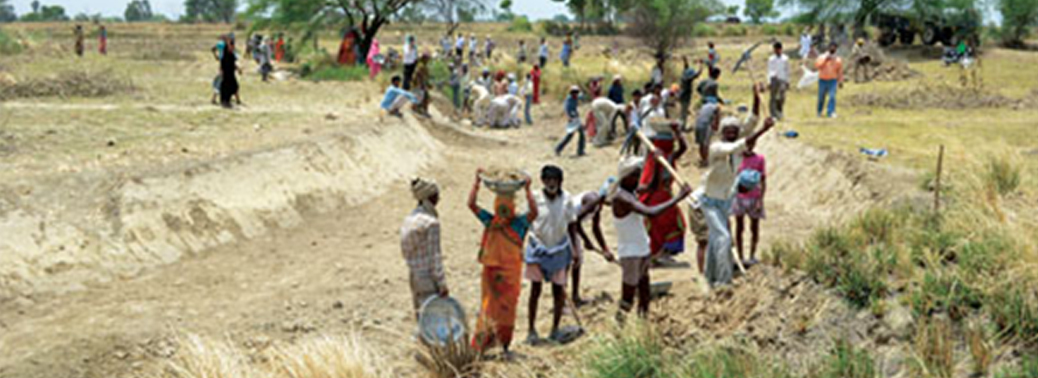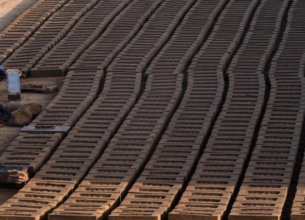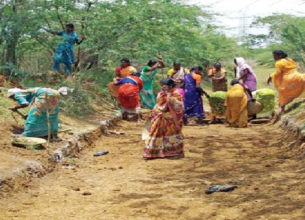SOCIAL AUDITS OF MAJOR RURAL DEVELOPMENT SCHEMES
13, Nov 2019

Prelims level : Institutional Reforms
Mains level : GS-II Departments of Government & Formal Associations
Why in News?
- The Department of Rural Development decides to institutionalize social audits in major schemes.
Highlights:
- The Department of Rural Development has decided to institutionalize social audits in major schemes of rural development, starting with the National Social Assistance Programme (NSAP) and the Pradhan Mantri Awas Yojana – Gramin (PMAY-G).
- In this backdrop, a two-day ‘National Seminar on Social Audit of Rural Development Programmes’ is being organised in November 2019.
- It is being jointly conducted by the Department of Rural Development and the National Institute of Rural Development and Panchayati Raj.
- The objective of the seminar is to understand the current status of social audits and Social Audit Units (SAUs) and develop a plan for roll out of social audit in other programmes.
- The Seminar will take stock of the current status of Social Audits and SAUs in terms of independency, funds, issues identified, actions taken, etc. and will provide a platform for SAUs to share their experiences of conducting social audit.
- Models and best practices in social audit from across states in India and also from other countries will be showcased.
- Participants will also develop an action plan for strengthening SAUs and roll out of social audit in other rural development programmes especially NSAP and PMAY-G.
Social audit for Schemes:
- Social Audit is recognized by many, including the Comptroller and Auditor General (CAG), as a powerful tool to enforce transparency and accountability.
- Mahatma Gandhi National Rural Employment Guarantee Act (MGNREGA) was the first Act to mandate Social Audits by the Gram Sabha of all the projects taken up in the Gram Panchayat.
- In addition to MGNREGA, a few states have taken up social audit of other schemes as well.
- Pradhan Mantri Aawas Yojana-Gramin (PMAY-G) audits are done in Uttar Pradesh, Meghalaya and West Bengal.
- National Social Assistance Programme (NSAP) audits are done in Andhra Pradesh and West Bengal.
- Meghalaya Legislature has enacted ‘The Meghalaya Community Participation and Public Services Social Audit Act, 2017’ which mandates social audit in 26 different schemes in Education, Health, Rural Development and other areas.
- Eight States have taken up Social Audit of 11 different schemes including Pradhan Mantri Aawas Yojana-Gramin (PMAY-G), Swachh Bharat Mission (SBM), National Social Assistance Programme (NSAP), Integrated Child Development Service (ICDS) and Mid-Day Meals (MDM).
Pradhan Mantri Aawas Yojana-Gramin (PMAY-G):
- This scheme functions under the Ministry of Rural Development.
- The objective of the scheme is to help rural people below the poverty line (BPL) in constructing dwelling units and upgrading the existing unserviceable kutcha houses by providing assistance in the form of a full grant.
- Rural housing programme, as an independent programme, started with the Indira Awas Yojana (IAY) in January 1996. To address certain gaps in the IAY, the government restructured it into the PMAY-G with a commitment to provide “Housing for All’’ by the year 2022. Beneficiaries are chosen according to data taken from the Socio-Economic Caste Census (SECC) of 2011.
National Social Assistance Programme (NSAP):
- NSAP was launched in 1995.
- This was introduced in accordance with the Directive Principles of State Policy (DPSP) which directs the State to provide public assistance to its citizens in case of unemployment, old age, sickness and disablement and in other cases of undeserved want within the limit of its economic capacity and development.
- The NSAP aims at ensuring a minimum national standard for social assistance in addition to the benefits that states are currently providing or might provide in the future.
- It is a social security and welfare programme to provide support to aged persons, widows, disabled persons and bereaved families on the death of the primary breadwinner, belonging to BPL households.
Currently, the NSAP comprises of Five Schemes:
- Indira Gandhi National Old Age Pension Scheme (IGNOAPS)
- Indira Gandhi National Widow Pension Scheme (IGNWPS)
- Indira Gandhi National Disability Pension Scheme (IGNDPS)
- National Family Benefit Scheme (NFBS)
- Annapurna Scheme








